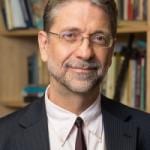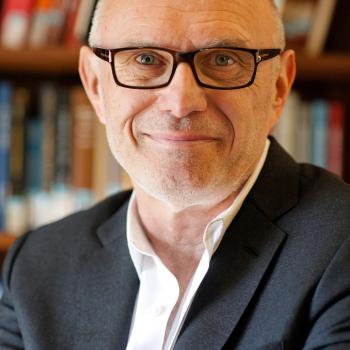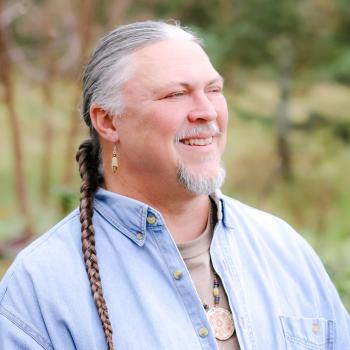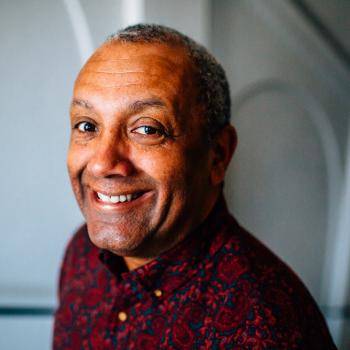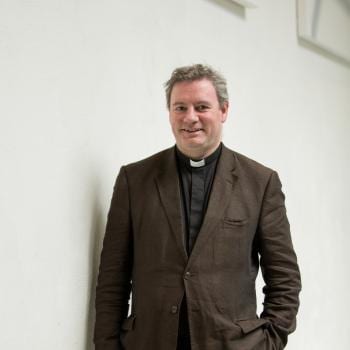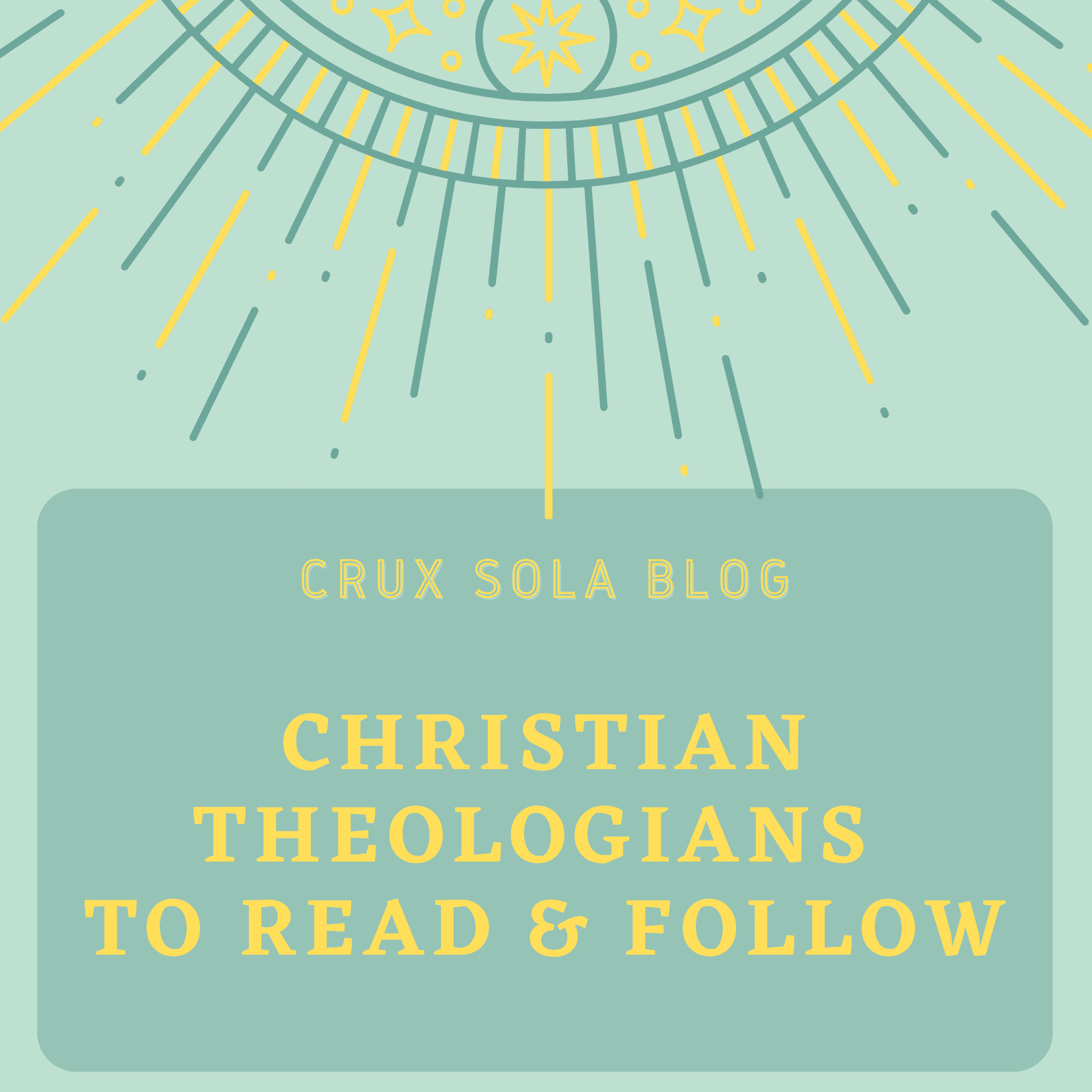
Lucy Peppiatt
Principal, Westminster Theological Centre
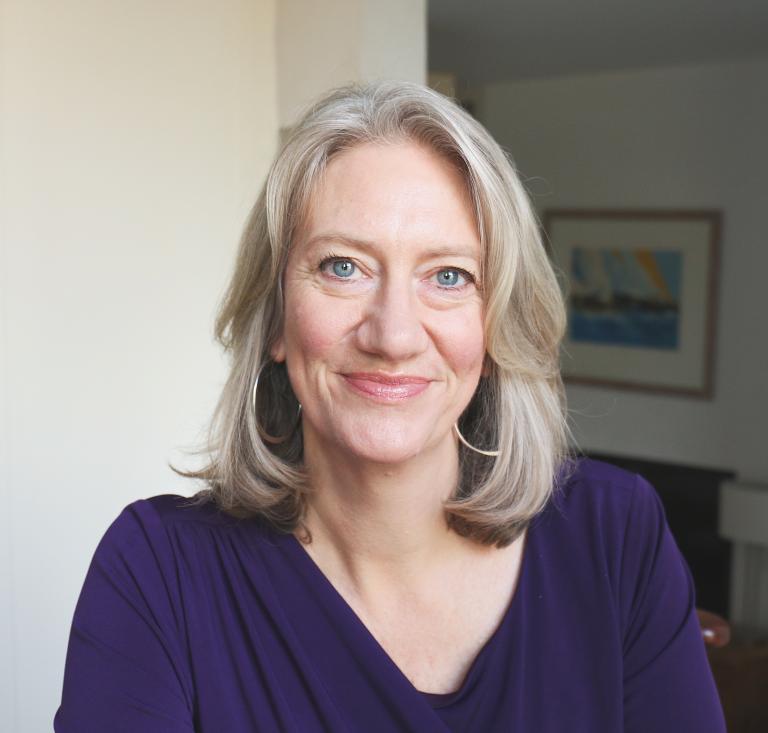
Why do you love teaching and researching about Christian theology?
I love God and am fascinated by everything about him, so the idea that I can teach and research ideas about God for a job is the dream as far as I’m concerned. I love teaching theology in the setting that I do, largely among evangelical charismatic Christians, because many of them come from backgrounds where academic theology was treated with suspicion and where there was an idea circulating that studying theology would weaken (or even destroy!) your faith. So when I see their eyes light up in discovering some of the treasures of scholarship and engaging with the great minds and hearts of the past, it gives me great pleasure. It’s also gratifying being able to teach them about the richness of the Christian tradition through the ages and to see how much our students appreciate learning church history. I see them realizing that academic theology can deepen one’s experience of God and strengthen one’s faith.
I love researching for my own work because it is both endlessly fascinating, and also challenging in many ways. I find systematic theology intellectually challenging, which I enjoy very much because it’s never boring. It’s also really satisfying to feel one has thought through a complex doctrinal issue and found some measure of insight. I very much enjoy the academic conversation because it all helps to hone one’s ideas. But I also find researching challenges me in terms of my own discipleship, forcing me to think about what I really believe and why and whether I’m living it out, so that’s wonderful. In addition to this, I have endless opportunities for writing and using words which gives me great pleasure.
What is one “big idea” in your scholarship?
I don’t think I have one ‘big’ idea. I think I’m a bit too eclectic (maybe unfocused?!) for that and so, in fact, I’d prefer not to I suppose. I think also, if I’m honest, I’m a bit sceptical of the one big idea as an academic goal and not sure about where this comes from. First of all, it means there’s too much pressure to innovate, which I’m not sure we should feel given the nature of the Christian faith and doctrine and secondly, in my experience, scholars can become too wedded to their one big idea in a way that prevents them from hearing other perspectives, and that’s not helpful.
The two ideas I return to again and again is first the idea that Paul unreservedly championed women, promoted them to all offices and ministries, and happily worked alongside them as equals. I like to continue to read and write on Paul, especially 1 Corinthians. The second idea that I return to all the time is the idea of Jesus of Nazareth as both the fully divine Son and a Spirit-filled man. I’m fascinated by the work of the Spirit in Jesus and what this means for Jesus as a model for a fully human life. So, I find myself often reflecting on Spirit Christology, how it fits within the classical doctrine of God, and what that means for theological anthropology. I like to think about how the classical doctrine of God can be worked out within a charismatic framework and worldview. For me, this is exciting as it has the best of both worlds.
If I leave a mark, I would want it to be in empowering women to study theology and for my students to love God more and be able to communicate what they believe well.
Who is one of your academic heroes and why do you admire them?
As I said, I’m quite eclectic so I have a number of heroes. If I had to choose one though, I’d choose Maximus the Confessor. He was deeply prayerful and humble, and at the same time, amazingly courageous, and he was definitely a hero. Maximus was both highly intelligent and full of conviction and therefore very stubborn about what he believed in, but he expressed this with great humility. Most importantly, at the end of the day, he was proved to be right about Jesus! He loved God and loved doctrine and formulated his ideas about God beautifully, with a pastor’s perspective.
What books were formative for you when you were a student? Why were they so important and shaping?
Before I was a student and before I even made a real commitment to Christ, I worked with the homeless in a Catholic day centre in London. One of my colleagues couldn’t believe I’d never read any theology and gave me Moltmann’s The Power of the Powerless. I loved it, it made a great impression on my, and it stayed with me. When I started studying for a degree years later, I studied a BD with no teaching, just a reading list and exams, so was left to my own devices! I found Colin Gunton and loved his books. I forget which one I read first. He was the reason I did an MA in Systematic Theology. These two theologians were important for me because they articulated the faith intelligently, but with an emphasis on real life, so it wasn’t just abstract concepts. Needless to say, I don’t agree with absolutely everything Moltmann and Gunton write, and much later I found myself leaning towards the Patristics, but I still have a huge soft spot for both of them.
Read Peppiatt’s Work
I’d like to spotlight Women and Worship at Corinth because most people read the easy and abridged version of my argument in Unveiling Paul’s Women, but I’d prefer people to engage with some of my arguments in Women and Worship. I’d also like to spotlight an essay I wrote on “Life in the Spirit: Christ’s and Ours,” which appears in The Christian Doctrine of Humanity: Explorations in Constructive Dogmatics, but is also on my academia.edu page.
Follow Peppiatt Online
If you ran into me at a conference and didn’t want to talk theology, what would you want to talk about?
If I ran into you at a conference and wanted to talk about something other than theology, I’d like to talk about food – and so if it were you, Nijay, I would love to talk to you about Indian food because I know you also like food! Food, cooking it and eating it with family and friends with good conversation, is my main interest outside of theology. I also love walking with my dog, watching comedy with my boys (I have four boys), and one day I’m going to take up calligraphy – when my life is less busy – haha.
What is a research/writing project you are working on right now that you are excited about?
Right now I’m working on a paper on the imago Dei. Next year I’ll be putting that into a little book for a Cascade Companion on the topic. I’m really enjoying thinking about that. I’m also preparing to teach a class for The Bible Project Classroom on 1 Corinthians and after that I’ll be writing a commentary on 1 Corinthians for the new Proclamation Series with Cascade Books (Wipf & Stock) for preachers. So fun things ahead!






